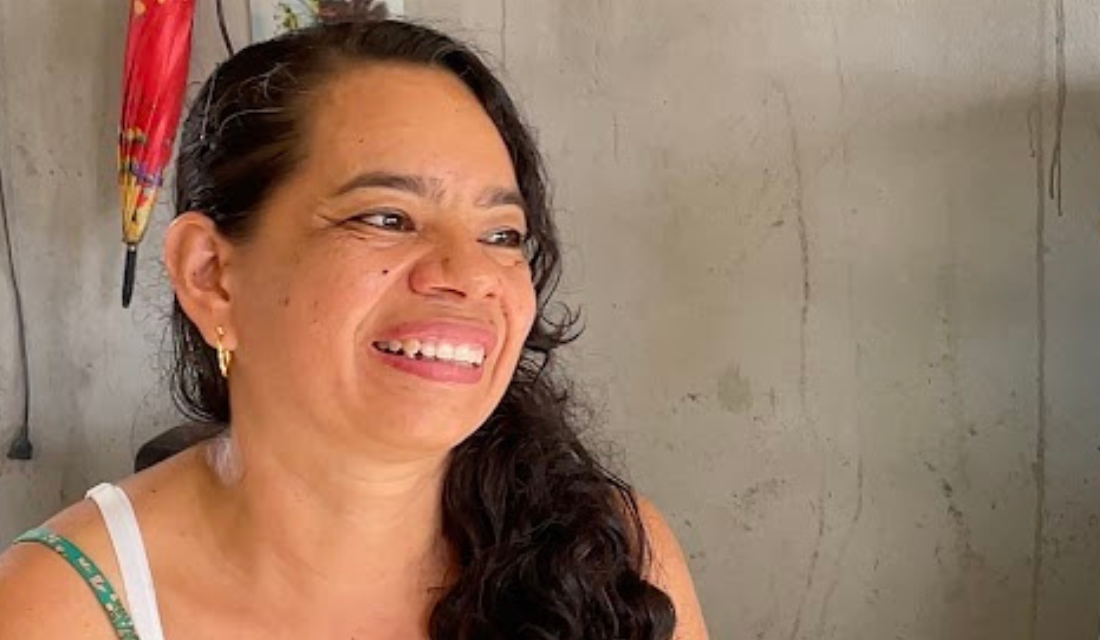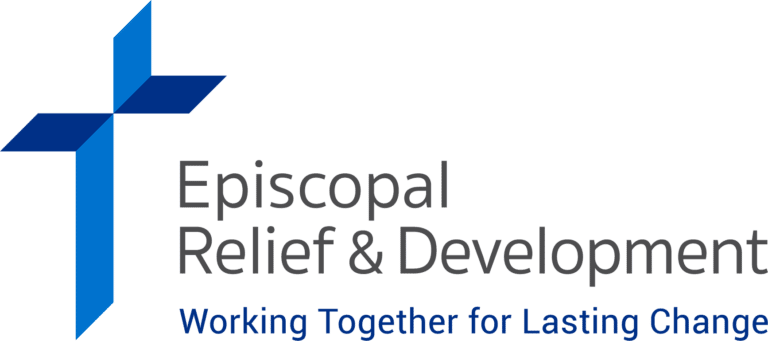“When I was a little girl, my father taught me to respect our ancestors,” Cristiane Flores, a young Gavião woman shared. Cristiane grew up in an Indigenous forest village near the banks of the Rio Negro, but she relocated several years ago to the metropolitan city of Manaus. “He also taught me to honor and see God in nature—in the trees, in water.”
In Brazil, Episcopal Relief & Development partners with the Episcopal Diocese of the Amazon to deliver the Amazônia Resilience Initiative, a program serving marginalized, often remote communities in the states of Pará and Amazonas. Many of those served by the initiative are among Brazil’s 1.7 million Indigenous people.
Cristiane and other participants receive monthly food debit cards or baskets containing rice, beans, cassava flour and other staples. Program teams also facilitate savings and loan groups that include financial literacy training. Members like Cristiane contribute monthly to a collective fund from which they can draw individual loans carrying minimal interest. Small late fees are incurred, and after all loans are paid back, the pot is evenly re-distributed.
“I’m grateful for this experience,” Cristiane reflected. “But six months ago, when I first heard about it—I was wary.”
Taking loans, paying interest and investing in a business are unfamiliar concepts to many Indigenous people, including Cristiane. Moreover, the history between Indigenous communities and outside groups, including religious organizations, is fraught.
To bridge cultural gaps and build the trust needed to create lasting change, Episcopal Relief & Development and its partners work closely with local faith leaders. In Manaus, one such ally is Father Orlando, a respected Indigenous spiritual leader with deep ties to local communities and a strong relationship with the Anglican Church. With his encouragement and support, the program is already making an impact.
A few weeks after joining the savings group, Cristiane took a loan to kickstart a business inspired by her Indigenous heritage. “I’m working as an artisan,” she said, “making decorative items like baskets, boxes, and jewelry that I sell near hotels and other tourist spots.”
Indigenous artisans like Cristiane only use natural materials such as the fronds, seeds, and berries of the açaí palm, which grows wild and abundant in the forest surrounding her village. In the big city, though, natural materials must be purchased. Without the cash boost from the loan, Cristiane said she’d be traveling hours every week to harvest supplies.
With the time and energy saved, Cristiane has been able to concentrate on increased production. As a result, she paid back the loan—and turned a profit—in just a couple of weeks. While a portion of the earnings go right back into the business, Cristiane is excited that she can also contribute to household bills.“This is the first time I’ve made my own money,” she shared. “I feel independent and almost like I just woke up.”
The Amazônia Resilience Initiative is improving food security and strengthening the economic resilience of families disproportionately impacted by climate change and the food crisis.


